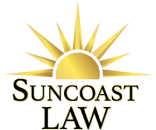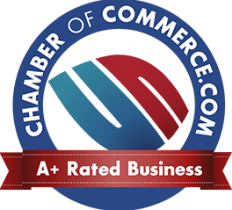Chapter 7 Bankruptcy
What is Chapter 7 Bankruptcy? Qualifications & How to File
Sometimes, despite all your best efforts, you still struggle to pay off medical bills, credit card accounts, and other financial obligations. If you’ve reached this point, it may be time to consider filing a Chapter 7 bankruptcy to get relief from unpaid debt, and get you back on track financially. By filing Chapter 7 bankruptcy, many of your debts will be discharged, including hospital bills, credit cards, judgments, and unsecured loans. Sun Coast Law, Orlando is one of the largest debt relief law firms in the country and works to help clients get the debt relief they need through a variety of solutions.
Our experienced Chapter 7 bankruptcy attorneys have been serving clients together since 1999 and proudly work to help people regain freedom from debt and restore financial well-being once again.
Our professional Chapter 7 bankruptcy lawyers would like to discuss your individual financial situation with you. Contact us at (844) 330-2727 to set up a free consultation to explore Florida Chapter 7 bankruptcy or other legal remedies available.
Who qualifies for Chapter 7 bankruptcy? Should I file for chapter 7?
To qualify for Chapter 7 bankruptcy under new bankruptcy laws, you either have to be under the “median income” for your geographical location or pass a “means test”. The means test takes into consideration your expenses, such as retirement income contributions or auto loan payments. While some of our clients have been told they don’t qualify for Chapter 7 bankruptcy based on the means test, we’ve been able to determine it wasn’t performed correctly and the client actually does qualify pursuant to it. Even if you don’t qualify to file for Chapter 7, you may still be able to file Chapter 13 bankruptcy.
Debt to be Discharged
Certain types of debt cannot be discharged through a Chapter 7 bankruptcy. These include child support, some tax debt, and secured loans tied to property such as your home or auto. In this case however, you can retain assets by making monthly payments and filing for reaffirmation of the debt through the courts.
My Assets and Chapter 7 Bankruptcy
A Chapter 7 bankruptcy is also known as “liquidation” bankruptcy since the trustee assigned to your case can seize certain assets you own to payoff your creditors. Under Florida bankruptcy law, certain property is exempt such as, your home’s equity and up to $1000 of equity in your auto or other personal property, ($4000 if you have not filed for Florida’s homestead exemption). Our attorneys are skilled at helping clients to retain assets through exemptions.
Additional Chapter 7 Benefits
While Chapter 7 bankruptcy eliminates unsecured debt for clients, it can also halt the process of the following:
- Foreclosure of your home
- Eviction from a rental residence
- Wage garnishment
- Repossession of an auto or other asset
- Harassment by creditors
To speak with an Orlando Chapter 7 Bankruptcy Attorney or help with Foreclosure Defense, please call (800) 535-3215.
Means Test
- Florida Bankruptcy Means Test: Eligibility and Requirements
- Steps To Determine Eligibility for Bankruptcy
Chapter 7 Bankruptcy
- Chapter 7 Bankruptcy
- Who Qualifies for Chapter 7 Bankruptcy?
- Debt to be Discharged
- My Assets and Chapter 7 Bankruptcy
- Additional Chapter 7 Benefits
Chapter 13 Bankruptcy
- Chapter 13 Bankruptcy Florida
- Is Filing for Chapter 13 Bankruptcy the Best Choice For You?
- Why File for Chapter 13 Bankruptcy?
- How Chapter 13 Works
- The Chapter 13 Process
- Meeting Chapter 13 Qualifications
- Discover the Benefits of the Chapter 13 Repayment Plan
- Benefits of Chapter 13
- Chapter 13 Bankruptcy Attorney
Chapter 7 vs Chapter 13
- Chapter 7 vs Chapter 13
- Chapter 7 Bankruptcy
- Will You Qualify for Chapter 7 Bankruptcy?
- Chapter 13 Bankruptcy
Chapter 13 Bankrutpcy Timeline
- Chapter 13 Bankrutpcy Timeline
- Chapter 13 Bankruptcy in Florida - What will happen?
- Chapter 13 Timeline
- Changes During the Three to Five-year Repayment Period
- What if I have filed for Chapter 13 bankruptcy before?
- Chapter 13 Bankruptcy Florida
- Is Filing for Chapter 13 Bankruptcy the Best Choice For You?
- Why File for Chapter 13 Bankruptcy?
- How Chapter 13 Works
- The Chapter 13 Process
- Meeting Chapter 13 Qualifications
- Discover the Benefits of the Chapter 13 Repayment Plan
- Benefits of Chapter 13
- Chapter 13 Bankruptcy Attorney
If you need to find a solution, contact a member of our team. SunCoast Law can help! We offer free initial consultations to all of our clients and would be happy to meet with you one-on-one.





